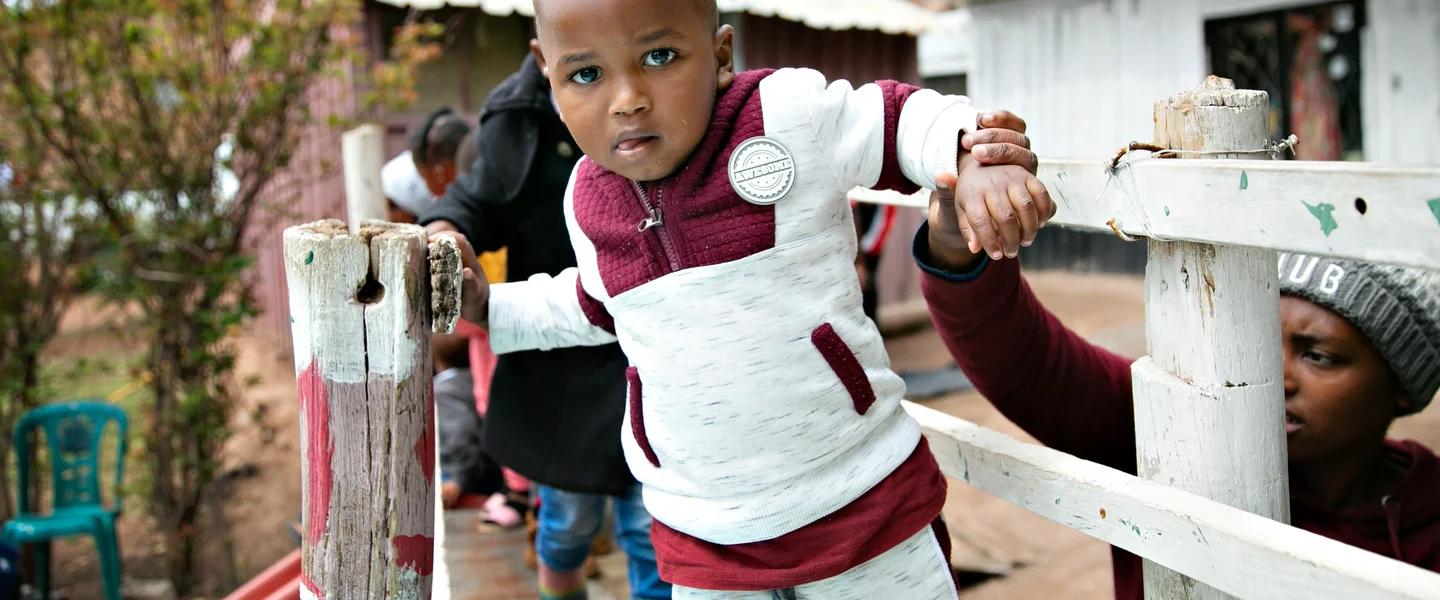MEDIA STATEMENT: SAVE THE CHILDREN SOUTH AFRICA HOSTS MULTI-STAKEHOLDER DEBATE AS GOVERNMENT PREPARES ITS PLANS TO IMPLEMENT THE POST 2015 AGENDA SUSTAINABLE DEVELOPMENT GOALS (SDG’s) IN SOUTH AFRICA
Only weeks ahead of the United Nations General Assembly summit for the adoption of the post-2015 development agenda- taking place this month- Save the Children South Africa yesterday hosted various stakeholders for a colloquium on implementing the post-2015 agenda.
This discussion with key stakeholders- including the Public Service Accountability Monitor, Institute For Global Dialogue, Human Sciences Research Council, Nelson Mandela Children’s Hospital and the South African Human Rights Commission amongst others- forms the beginning of a multi-stakeholder debate as the South African government prepares its plans to implement the post-2015 agenda. South Africa will be amongst the nations comprising the nations of the world that will adopt a framework that will take over from the Millennium Development Goals (MDGs), with the ambition that all forms of extreme poverty will be eradicated by 2030.
The symposium gave stakeholders the opportunity for different stakeholders to deliberate South Africa’s country-level realities with regards to institutional set up, means of implementing and financing the Post-2015 framework. The proposed goals for the post-2015 development agenda are ambitious, with the aim of meeting the dual challenge of overcoming poverty and protecting the planet. They will build on the experience acquired in pursuing the Millennium Development Goals (MDGs) and pick up the unfinished agenda, but they are to go further, highlighting a comprehensive vision of sustainable development that embraces economic, social and environmental dimensions.
On the marked difference between MDG’s and SDG’s Dr Kristina Bentley, an Independent Researcher said: “The shift is from access to quality. In South Africa we still have a challenge to access, and the SDG’s are a much taller order.” Dr Bentley further described the SDG’s as a hefty shopping list and highlighted that sharpened focus is needed. This “sharpened focus” is what Save the Children South Africa’s Head Of Advocacy and Campaigns, Abongile Sipondo believes will ensure that ‘no -one is left behind’: “The poorest and most marginalised, including the most vulnerable children must benefit first from development progress and there must be ambitious objectives in the country that can facilitate “getting to zero” on all dimensions of extreme poverty.” Sipondo further noted that to achieve the SDGs, the government has to look at its MDG performance, identify where it has fallen short and have ambitious and measurable goals and targets in place; which must be underpinned by principles of equality, equity, universality and sustainability.
Attention on how this ambitious post-2015 agenda will be financed, both at national and international levels was one of the key questions the symposium deliberated on, and there was consensus that budget transparency, participation and accountability are prerequisites for efficient financing for development. Dr Philani Mthembu of the Institute for Global Dialogue reflected on the implication of SDGs beyond South African borders and the role that South Africa should play: “It’s important to understand how issues addressed today affect our immediate region while understanding South Africa’s responsibilities as a regional power. In order to improve its engagement with the continent, South Africa must put in place a more coherent institutional framework through the South African Development Partnership Agency (SADPA).”
Speaking at the conclusion of the colloquium, SCSA’s Child Rights Governance Programme Manager Richard Montsho spoke on the apparent shortfalls of the SDG’s within the South African context. Montsho said: “We must prioritise a reduction in all forms of inequality across all age groups, gender, sector, race and class, and also advocate for sufficient allocation and commitment of resources to ensure that the Post-2015 Agenda does not become an “unfunded” mandate” – as was the case with the MDG’s.” Montsho also said Public Private Partnership (PPP) is at the centre of the successful implementation of SDG’s: “There is a need for ongoing dialogue and engagements between CSOs and government to foster transparent budgeting processes. Further, there is a need to advocate for a clear Implementation Plan with clear Monitoring and Evaluation Plan to translate SDGs into a reality.”
The United Nations Sustainable Development Summit takes place in New York, USA on 25-27 September 2015.
Save the Children South Africa is part of the world’s largest independent development and rights based organisation for children, represented in over 120 countries worldwide, a member of the United Nations Major Group for Children and Youth (MGCY). We therefore support the vision espoused by the SDG’s to eradicate poverty in all its forms as an imperative for the next generation of sustainable development goals, while leaving no one behind, putting sustainable development at the core, transforming economies, building peace and forging a new global partnership. The MGCY is the officially recognised space within UN processes for Sustainable Development which facilitates the voice of children and young people.
//…ends
For interviews and further information, please contact: Asanda Magaqa, Media Relations Manager, Save the Children South Africa Tel: 082 572 3232
ABOUT SAVE THE CHILDREN SOUTH AFRICA
Save the Children South Africa is a local organisation fighting for the rights of children in South Africa; helping them fulfil their potential and working together with partners to achieve immediate and lasting change in children’s lives. Save the Children South Africa is part of the world’s largest independent development and rights based organisation for children represented in 120 countries worldwide.


